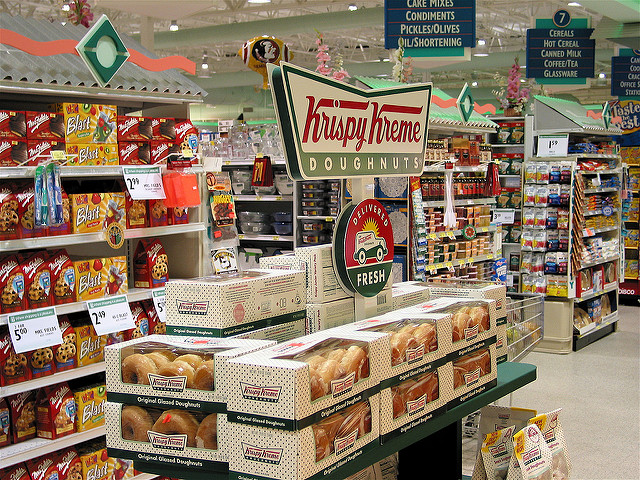
Originally published March 6, 2018.
In the United States, poor parents face intense scrutiny for their purchasing decisions, especially for buying unhealthy food for their children. New research sheds light parents’ decisions to buy or not buy junk food for their kids. In a recent op-ed for the Los Angeles Times, Priya Fielding-Singh explains that junk food consumption is an emotionally-rooted decision for impoverished parents.
Fielding-Singh observed the food-purchasing habits of 73 families. Families experiencing poverty honored their children’s requests for junk food more often than affluent parents. For poor families, junk food was one of few affordable luxuries. It was sometimes the only chance for parents to say “yes” to something their kids asked for. Fielding-Singh notes,
“For parents raising their kids in poverty, having to say ‘no’ was a part of daily life. Their financial circumstances forced them to deny their children’s requests — for a new pair of Nikes, say, or a trip to Disneyland — all the time. This wasn’t tough for the kids alone; it also left the poor parents feeling guilty and inadequate.”
More affluent parents, on the other hand, had the means to grant these more indulgent requests. Saying “no” to junk food was their way of encouraging their children to have better dietary habits, as well as discipline and willpower. This doesn’t mean poor parents were unconcerned with their children’s nutrition. According to Fielding-Singh, “poor parents honored their kids’ junk food requests to nourish them emotionally, not to harm their health.” So, health disparities are not just about lacking healthy options or resources. This research shows that we also need t0 consider the emotional side of decision-making related to health.

Comments 7
Mary Billups — March 6, 2018
Interesting!
A — March 13, 2018
I agree we live on under $30,000/ yr. Occasionally I let my kid eat a bit if junk food because I get so tired of saying no all the time not that I don't feed him mostly a plant based diet but because he deserves a little something ..he's a sweet an kind kid and life can be unfair.
Letta Page — January 8, 2019
Caitlyn Daniel has also done great research on the subject, finding that, when you can't afford to waste food or money, a parent might avoid buying anything the kid even *might* not like to eat.
Letta Page — January 8, 2019
Oops! Cut myself off. Wanted to add that I can see how both of these lines of reasoning would work together to influence food buying choices: I can say "yes" to something my kid wants and because I know they want it, it won't go to waste.
Sara — May 14, 2021
Junk food is an easy way to feed children. Moreover, it's not expensive. There is a lot of educational content, such as https://samploon.com/advantages-and-disadvantages-of-junk-food/ which describes the positive and negative aspects of snacks. I like such food and I think that people can eat it, but in small amounts and not so often. I've written an essay on that theme and can say that such type of meals can be harmful to the health, but it can give some pleasure.
James Bond — October 28, 2023
Poor peoples say yes to junk food because they can't afford expensive foods.There are many low prices fast food restauants like.GoPizza Singapore Fast Food Restaurant
Henry Milton — November 13, 2025
It’s an eye-opening look at how limited budgets and time pressures push many parents toward quick, cheap food options. Access to healthier choices isn’t always as simple as it sounds. The same way families look for practical fixes at home—like working with Garage insulation contractors to cut energy costs—they also need practical, affordable options when it comes to food.